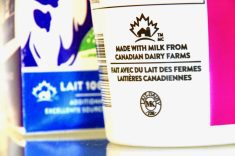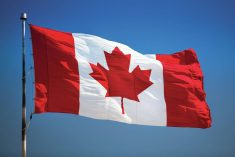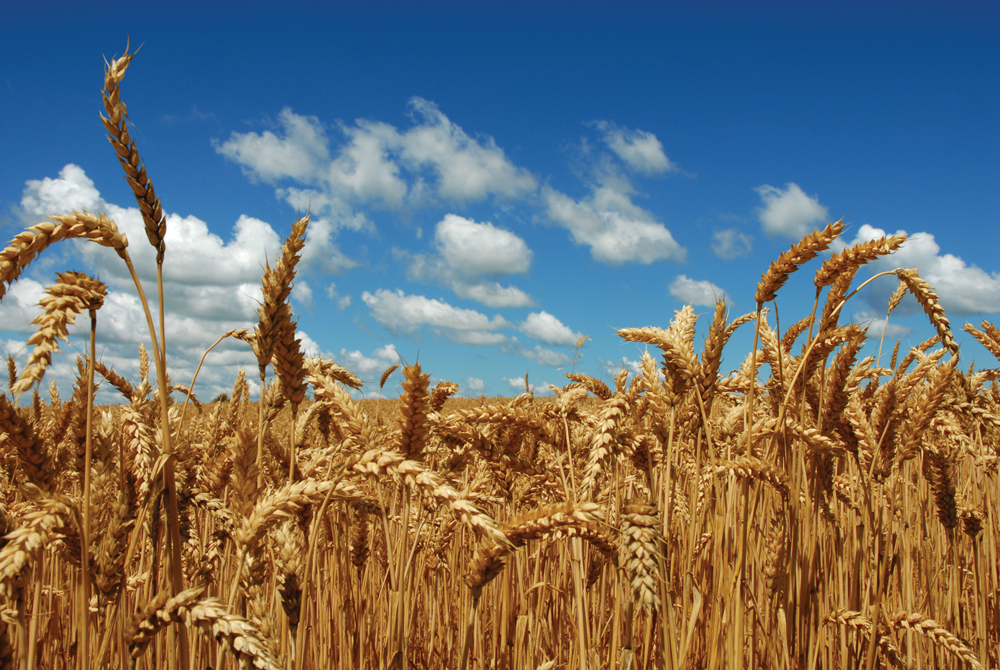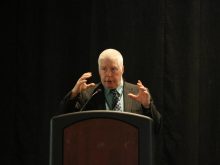Donald Trump may not like NAFTA, but his new agriculture secretary doesn’t seem too fussed about it
When Canadian, American and Mexican agriculture ministers got together last month in Savannah, Georgia, they weren’t there to discuss what U.S. President Donald Trump has described as “worst trade deal in the history of the world.”
On the contrary, they talked about the North American Free Trade Agreement (NAFTA) as though it was about the greatest thing since sliced bread.
“It was stated quite clearly at the meeting that we don’t want to fix something that’s not broken,” Canada’s Minister of Agriculture and Agri-Food Lawrence MacAulay told reporters following his meetings with U.S. Secretary of Agriculture Sonny Perdue and Mexican Secretary of Agriculture, Livestock, Rural Development, Fisheries and Food José Calzada.
Read Also

Guarding against misinformation: Do you believe in house hippos?
Misinformation and disinformation run rampant in today’s digital age. Farmers must be wary of the digital dangers and know how to keep themselves safe.
Nor was MacAulay interested in enlightening reporters about the apparent disconnect between Trump’s posturing and how they see the deal.
“It’s fair to say, we didn’t discuss our bosses at all really,” he said. “We sat down to discuss the issues and the great value of NAFTA and what small changes might be made in order to make sure the great growth that has been experienced over the past 23 years or so is continued.”
Reporters asked, “what issues?” MacAulay hedged, saying there are always “irritants” but nothing worth fighting over.
“It’s well understood with the North American ministers and secretaries that NAFTA has been a very valuable asset to the three countries and what we wish to do is make sure it continues in that manner,” he said. “In fact yesterday (June 20) was a very collaborative effort on the part of all three countries. There was no specifics as to what will be on the table or not on the table.”
MacAulay pointed out that agricultural trade between the NAFTA partners has quadrupled since the deal came into effect in 1994. More than half of Canada’s $62.5-billion agricultural and food exports goes to its NAFTA partners.
Economists Al Mussell and Doug Hedley at the University of Guelph’s Agri-Food Economic Systems division recently analyzed the agricultural trade patterns among NAFTA partners.
They found that Canada is the leading source of foreign bulk material for agri-food processing in the U.S., to the tune of US$1.67 billion annually.
Canada is also the leading imported source of intermediate product for agri-food processing, a market of about US$6.5 billion annually.
Canada is the leading foreign market for consumer-oriented food products produced in the U.S., selling goods worth US$16.2 million in 2016. Mexico is the second largest at US$8 billion.
In other words, Canada ships commodities such as wheat, oats, hogs, and cattle to the U.S. and buys the processed goods back, which gives lie to Trump’s assertion that NAFTA has been bad for manufacturing jobs in his country.
However, Canada’s exports have also been the source of some of the major “irritants” in the past because they are perceived by grassroots farm organizations in the U.S. as either stealing or depressing domestic markets.
The cattle farmers’ group R-CALF is suing the U.S. government to have country-of-origin labelling laws reintroduced. But that’s not even covered under NAFTA. Canada and Mexico had successfully challenged that law at the World Trade Organization.
Likewise, even though Trump has identified Canada’s supply management dairy policies as an issue up for negotiation, that’s not covered by NAFTA either. The one thing MacAulay was specific about was that it’s not going to be either.
“We have indicated quite clearly that we are the party that fought to put supply management in place and we’re the government that’s going to defend it. That’s pretty well known across North America,” he said.
When asked what agricultural trade agenda Canada will pursue when negotiators do start reviewing the agreement, MacAulay said that will be for others to decide.
“I can’t speak for what Americans are going to do and negotiators are going to do. We’ll have to see how the table is set,” he said.
“We’re just waitin’ and seein’.”
From the sounds of it, all three ministers are waiting and seeing — and hoping it all goes away.
















